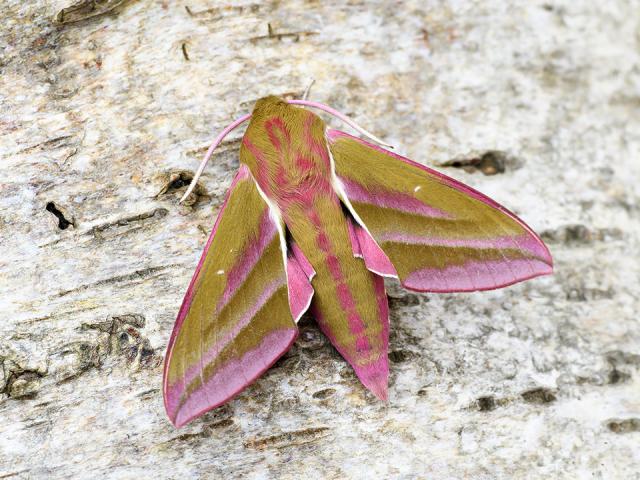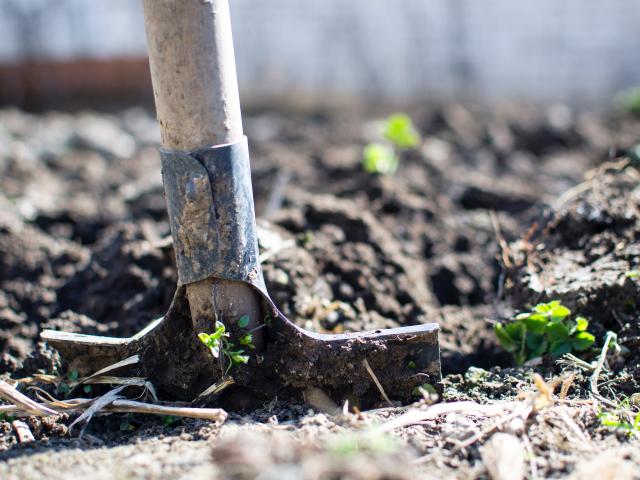Gardening and wellbeing
There is increasing evidence that spending time outdoors provides substantial health benefits and improves wellbeing. Simply being in a green space can make you feel happier and healthier and gardening is an easy way to get out in nature.
Hopefully, you'll be making the most of any good weather this summer and spending time counting butterflies in our Big Butterfly Count. In the summer, the sight of a pretty purple Buddleia bush alive with Peacock butterflies and Humming-bird Hawk-moths can be very uplifting.
Studies have reported a wide range of health outcomes from gardening, including reductions in depression, anxiety and body mass index as well as positive effects on dementia sufferers, increases in satisfaction, quality of life and sense of community. Gardening enhancing your physical and mental health and wellbeing. The New Economics Foundation has suggested five ways to wellbeing, which are supported by evidence: Be Active, Take Notice, Keep Learning, Give and Connect. This list can be applied to gardening:
Be Active
Digging the flowerbeds or cutting back bushes definitely provides an enjoyable workout. Regular physical activity is associated with lower rates of depression and anxiety across all age groups. It also helps to prevent heart disease, high blood pressure and obesity.
Take Notice
After all the hard work, sitting in the garden can be restorative. There is always something to notice – maybe the enchanting baby sparrows being fed on the bird table - which helps you to be engaged in that moment rather than stressing over the past or future. Some repetitive gardening tasks, such as deadheading flowers, are calming and meditative. Watering in the evening or potting up a container with nectar plants can be very relaxing. When your mind is absorbed in the task at hand, you can enter a state of flow where daily worries fall away.
The garden can also be a place that stimulates all the senses – the sound of the House Martins twittering; the sight of a brightly-coloured Small Tortoiseshell butterfly feeding on Verbena bonariensis; the smell of Honeysuckle or Mint leaves (foodplant for the Mint Moth); the taste of a freshly-picked blueberry or strawberry and the feel of the sun on your face.
Your garden is an outlet for your creativity, where you are in charge and can make the decisions about what to plant, boosting self-esteem and giving a sense of satisfaction when you see the results of your labours.
Keep Learning
As well as calming the mind, you can also keep it active with constant learning about plant varieties, flowering times and growing conditions. Keeping the mind stimulated can help to ward off mental decline. Reading gardening books and magazines can become a consuming interest. You can also gather planting ideas from visiting historical gardens, village ‘open gardens’ or horticultural shows.

As a wildlife gardener, the focus is on learning about the needs of the creatures visiting your space. Butterflies and moths require food sources throughout the year - such as Primroses in spring, Buddleia in summer and Michaelmas Daisies in autumn. Alongside the nectar plants, you should also learn about the right foodplants for the caterpillars as they often have specific requirements, such as Fuchsia or willowherbs for the Elephant Hawk-moth.
In addition to gaining knowledge, you also learn resilience. It can be disheartening when you have spent hours planning and planting to find that the slugs and snails have devoured everything or if your favourite plant dies in intense weather – like the current drought. However, it opens up exciting new opportunities to design a different future. Also, you can be led to discover new information, such as the best plants to grow in dry conditions – for example Lamb’s Ears, which has soft silver-grey leaves to reflect the heat and pink flowers which are a good nectar source.
Give
When you look around your garden and see all the insects busily feeding on the plants you have tended, you can feel really wonderful about having given them a lovely habitat. If you have collected seeds, or have extra plants grown from cuttings, you could give them away or swap with friends.
Connect

Participation in social and community life is known to boost happiness. Gardeners are always delighted to share their experience and give tips. If you want to bond with other gardeners you could share an allotment or see if there is a local community garden where you can help alongside other volunteers.
I hope your garden or green space brings you much pleasure. Let us know how your garden enhances your wellbeing.
Happy Gardening!
The Secret Gardener

